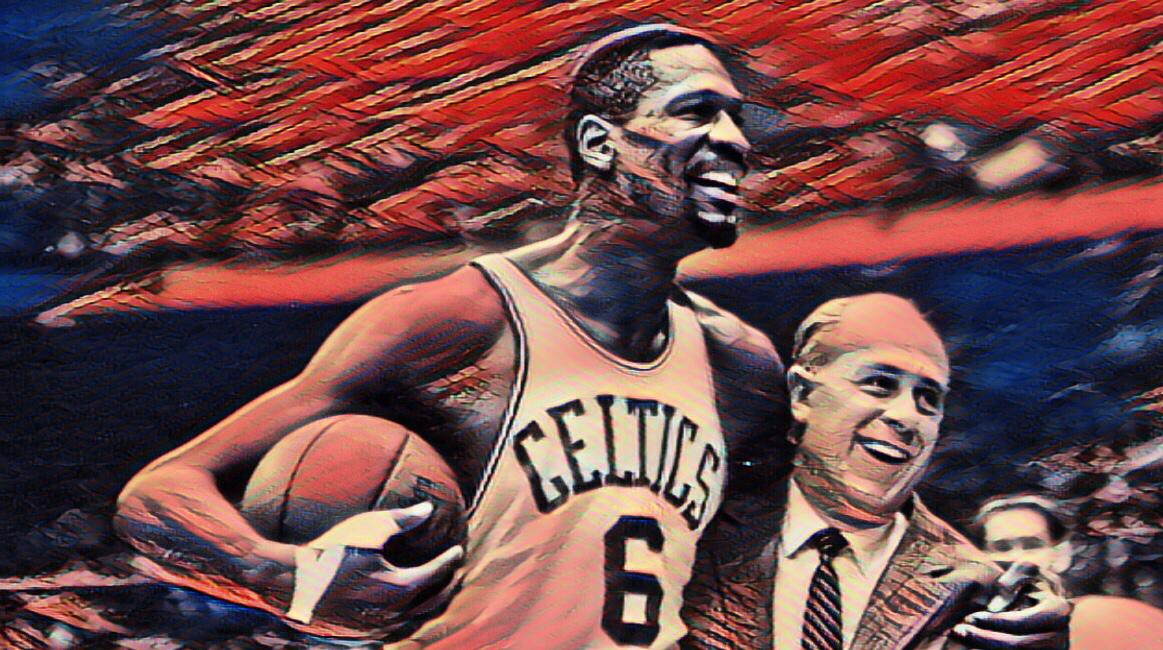In this article, we’ll analyze the film The Damned United using psychological terms. This movie focuses on a segment of Brian Clough’s life, often hailed as the best football manager in English history. Clough and Peter Taylor are renowned for their successes with Nottingham Forest. However, this film zeroes in on Clough’s managerial stint at Leeds United. Unlike many sports films that center on team motivation or success stories, this one delves into the game’s behind-the-scenes drama. It scrutinizes the relationships between the manager, team captain, club president, and fans, offering viewers a unique perspective.
“I’m Not the Best Manager, But I’m Definitely in the Top One.”

About the Film
The first thing that catches your eye about this film is its non-linear narrative. To keep the story engaging, it’s interspersed with flashbacks. However, for clarity’s sake, this article will follow the story chronologically.
Before Leeds matches, Brian Clough chats with Peter, reminiscing about how he and Don Revie grew up a few streets apart and probably got sugar from the same factory. Clough mentions that Revie, like him, played as a striker for Sunderland and also represented the national team. Clough tries to create a shared history with Revie—two men who walked similar paths. The only difference? Revie was the manager of England’s best team, while Clough managed a team at the bottom of the second division. Clough saw himself as Revie’s equal and believed he deserved to be on the same level.
The day before a Derby vs. Leeds match, Clough was excited to meet Revie and prepared extensively. But when Revie arrived, he shook hands with Peter and ignored Clough. After the match, Revie didn’t visit Clough’s office. Adding insult to injury, Leeds played aggressively, which Clough deemed as cheating—not real football.
Motivated by Revie’s slight, Clough aimed to get Derby promoted to face Leeds again, which he achieved that season. When Derby played Leeds in the first division, they lost 5-0. Revie’s comment to the media that Leeds had a tradition of reminding teams they had a long way to go only fueled Clough’s determination.
Clough aimed higher, signing new players with Peter’s keen eye for talent, leading to a heated argument with Derby’s chairman, Sam Longson, who asserted that club presidents, not managers, ran football clubs.
In their third clash, Derby beat Leeds, rising to become one of England’s top teams and facing European clubs. During a crucial week with matches against Leeds and Juventus, Clough fielded his best players against Leeds, who played even more ruthlessly, jeopardizing the Juventus match. Despite Longson’s warnings, this led to a severe altercation, with Longson reminding Clough of the club hierarchy and the importance of respecting it.
The Question of Leadership
The viewer is prompted to ponder: is it right to seek a single leader in football? True leadership in football is collective, encompassing the manager, players, fans, and executives. Success is a team effort, not the domain of one individual. Therefore, seeking a single leader is misguided; the team as a whole is the true leader, with each link being crucial.
Peter and Brian’s friendship endured this turmoil, with Peter securing a financially advantageous offer from Brighton. Although initially reluctant, Clough agreed, and they worked there for a while. The film skips some real-life events, but eventually, Leeds offered Clough a managerial position. Despite Peter’s refusal to join him, Clough took the job alone, leading to their bitter fallout.

Clough’s Leeds Tenure
Clough’s 44-day stint at Leeds was fraught with resistance from players, fans, and management. The players refused to play Clough’s way, not engaging in rough play but also not showing their skills. Clough brought in three new players to rectify the situation, but success remained elusive. Leeds captain Billy Bremner’s suspension worsened matters. Ultimately, the board, backed by players and fans, sacked Clough.
Following his dismissal, Clough accepted a media interview, surprised to find Revie there too. The host, praising Revie, incited a heated exchange. Clough criticized Revie’s management and recounted their first snub. Revie dismissed this, claiming he didn’t recognize Clough. The host abruptly ended the interview, leaving Clough humiliated.
Afterward, Clough apologized to Peter, who accepted, and they took over Nottingham Forest, achieving great success, with Clough’s name still honored there today.

Analyzing the Film Through Psychological Concepts
Now, let’s delve into The Damned United—or more precisely, the life and times of Brian Clough—from a psychological perspective. To get started, we need to define the terms we’ll be using in our analysis.
Positive Psychology is the scientific study of the conditions and processes that contribute to the optimal functioning of people, groups, and organizations. Its main goal is to create systems that nurture human potential.
Positive Psychological Capital is a concept that encompasses a person’s self-efficacy, hope, optimism, and resilience—qualities that, when combined, add up to more than the sum of their parts.
Let’s break down Brian Clough’s choices and behavior using these sub-concepts.
Self-Efficacy
Self-efficacy is the belief in one’s ability to succeed in specific situations or accomplish a task. According to Bandura (1986), it involves organizing and executing the necessary actions to achieve desired outcomes. In an organizational setting, employees with high self-efficacy are more likely to put in the effort needed to achieve success.
Thinking about Brian in terms of self-efficacy, from the outset, he pursued his goals with unwavering determination, tackling every challenge head-on.
Luthans identifies five dimensions of self-efficacy, two of which particularly relate to Brian:
Influenced by Others: Seeing people who are similar to themselves succeed can boost one’s belief in their own abilities.
As mentioned at the beginning, Brian identified strongly with Don Revie. They had similar backgrounds, which led Brian to believe he could be just as successful.
Variable: Self-efficacy can change based on a range of factors, both internal and environmental.
When Brian joined Leeds, he had clear goals. He believed he could easily influence the players and change their playing style. But reality struck when the players resisted, largely due to their loyalty to Don and past criticisms from Brian. Despite his confidence, the opposition from players, management, and fans prevented Brian from achieving the outcomes he believed he could.
According to Luthans, people with high self-efficacy have five key characteristics (Luthans, Youssef, and Avolio, 2006):
Set High and Challenging Goals: Brian always aimed high, especially after Don’s dismissive behavior. He wanted to be the best manager in England.
Persistent and Willing to Take on Difficult Tasks: Brian’s impatience and intense drive are evident in the film. His constant push for new players, often without consulting Sam, shows his impatience. His drive even led him to make questionable decisions, like parting ways with Peter Taylor.
Self-Motivation: Brian was always motivated and confident in his path—until he joined Leeds. There, the unanticipated challenges led to a slight dip in his motivation.
Exert Effort to Achieve Goals: Despite facing numerous obstacles, Brian never stopped trying. At Derby, where the barriers were fewer, he succeeded. At Leeds, despite the intense resistance, he kept fighting.
Resilience in the Face of Challenges: Brian continued to find ways to overcome the difficulties at Leeds, from trying to persuade players to bringing in new ones.
Hope
Hope involves setting specific goals, finding ways to achieve them, and staying motivated. It’s about having the drive to pursue meaningful goals and the plans to reach them.
At Derby, Brian constantly identified gaps and filled them with new players, aiming for that match against Leeds. At Leeds, he brought in players from his old team to cover the shortcomings caused by the resistance. These actions show Brian’s ability to find alternative paths towards his goals.
Optimism
Optimism, according to Seligman, is the tendency to attribute positive events to personal, permanent, and pervasive causes, and negative events to external, temporary, and situation-specific causes.
Brian credited the successes of his teams to himself (personal cause for positive events) and blamed the resistance from Leeds players for his failures there (external cause for negative events).
Positive Resilience
Psychological resilience is the ability to bounce back from adversity, conflict, and failure. It’s about adapting positively to challenges and stressors. In organizational settings, resilience helps employees cope with stress, burnout, and job loss.
At Derby, Brian adapted well to increasing responsibilities, demonstrating psychological resilience. At Leeds, despite facing more significant adversities and conflicts, he continued to strive for success, finding new ways to cope with the intense stress and opposition.
In summary, while Leeds might have seemed like a failure for Brian, his later success with Nottingham Forest shows that he wasn’t a failure overall. Organizations often focus on improving weaknesses rather than leveraging strengths. In football, Brian and Peter were adept at analyzing their players’ strengths and weaknesses, offering constructive feedback that never undermined their players’ confidence.
Conclusion
You might think the film is all about ambition. And sure, Don’s criticisms might seem justified at times. But ultimately, Brian’s ambition—or rather his relentless pursuit—only truly hurt him in his relationship with Peter.
Brian’s ego likely caught your attention. Remember the quote at the beginning? That was Brian humorously acknowledging his own ego. His arguments with Sam and Peter, and the fans’ description of him as “a bit full of himself,” all underscore this point. Brian’s ego led to his biggest conflicts and poor decisions, such as his resignation to assert his indispensability.
In conclusion, organizational psychology is a complex field, and this film offers a glimpse into how a manager’s decisions reflect deeper psychological dynamics. Through The Damned United, we explore how positive psychology impacts a person’s life and how these traits manifest in football.
This article draws on Rana Özen Kutanis and Emre Oruç’s “Conceptual Review on Positive Organizational Behavior and Positive Psychological Capital” and Fırat Topal’s blog post on the film.







